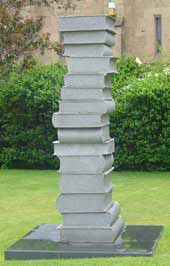This site was set up in order to collect information about the topic of plagiarism, primarily in German for a German-speaking audience. We will translate as much as possible – volunteers are welcome!
What is plagiarism? It is very difficult to define it exactly. Is it just a one-to-one copy of sentences? How much has to be copied in order to be considered a plagiarism? Is it still plagiarism if you edit the text? If you only use the order of arguments and do not copy the words?

The following joke definition attributed to Wilson Mizner circulates around the Internet:
Copy from one book = plagiarism;
Copy from two books = an essay;
Copy from three books = a compilation;
Copy from four books = a dissertation.
Today some might add: Copy from the Wikipedia = term paper.
Other voices:
Gerhard Fröhlich, University of Linz, Austria: „Plagiarism is the unauthorized use of the intellectual property of other persons, also known as ‚theft‘.“ [from echt_falsch]
Teddi Fishman, International Center for Academic Integrity:
„Plagiarism occurs when someone
1. Uses words, ideas, or work products
2. Attributable to another identifiable person or source
3. Without attributing the work to the source from which it was obtained
4. In a situation in which there is a legitimate expectation of original authorship
5. In order to obtain some benefit, credit, or gain which need not be monetary“ [4th APCEI]
A current note: Richard Moody, Jr. writes in an article in Nexus Magazine:
„Einstein plagiarised the work of several notable scientists in his 1905 papers on special relativity and E = mc2, yet the physics community has never bothered to set the record straight in the past century.“
